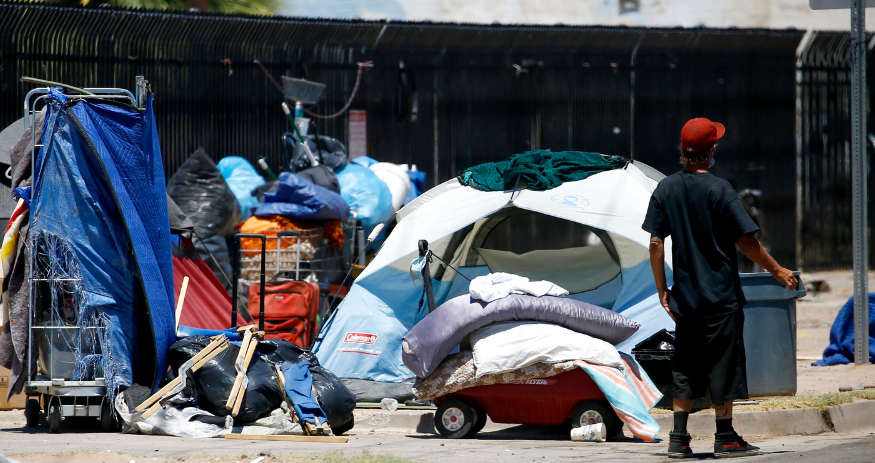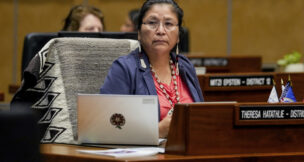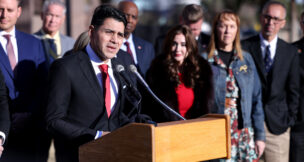Prop 312: a misguided response to homelessness and crime
Nicole Newhouse Guest Commentary//October 15, 2024//
Prop 312: a misguided response to homelessness and crime
Nicole Newhouse Guest Commentary//October 15, 2024//
This November, Arizona voters will be asked to decide on Proposition 312, a plan that offers property tax refunds to owners who face costs from public issues like homelessness, vandalism, and drug use. While this might sound like a reasonable solution, Prop 312 doesn’t address the real causes behind these challenges. Instead, it creates financial stress for local governments without solving underlying problems.

A Band-Aid, not a solution
Arizona, like many other states, is struggling with rising homelessness. People are dealing with increasing housing costs, evictions, mental health challenges, and addiction, all of which contribute to more people who are homeless. Proposition 312 doesn’t do anything to tackle these problems. Instead, it only offers property owners a way to get reimbursed for cleanup costs after the fact, while the underlying causal issues persist.
For example, Phoenix has seen homelessness nearly double since 2017, and the number of drug overdoses has significantly increased. Proposition 312 won’t help reduce these numbers. Without addressing why homelessness and addiction are rising, these problems will keep getting worse, leading to more expenses for everyone.
A burden on local governments
One of the major downsides of Prop 312 is the strain it would place on city and county budgets. Local governments would have to cover the cost of these refunds with their own funds. This means less money would be available for important services like public safety, health programs, and community support initiatives.
Cities like Phoenix are already stretched thin trying to manage the increasing needs of their communities. Instead of focusing on ways to prevent homelessness and improve public safety, Prop 312 would force them to spend money on refunds, taking away from efforts that could reduce the need for these cleanups in the first place.
Encouraging more lawsuits
Another issue with Prop 312 is that it could lead to more legal battles. If a property owner’s claim for a tax refund is denied, they can take the city to court. This creates a system where lawsuits become more common, adding even more costs to local governments that are already struggling with limited resources.
Instead of bringing property owners and local governments together to work on solutions, Prop 312 might end up creating more conflict. Cities would spend more time defending themselves in court, which means less focus on the real problems affecting the community.
Moving people, not solving problems
Prop 312 may lead local governments to focus on clearing homeless encampments or enforcing public nuisance laws, but this approach doesn’t address the root issues. Moving people without addressing core problems—like lack of access to services—only displaces homelessness. For example, in Phoenix’s “Zone,” removing people without proper support makes it harder for them to access help, increasing the likelihood of them returning to the streets. Arizona should invest in services like mental health care, job training, and addiction recovery to tackle the root causes of homelessness. Prop 312 risks making the problem worse by ignoring these essential needs.
What Arizona needs
Prop 312 tries to offer a quick fix, but the reality is that it doesn’t tackle the real issues driving homelessness and crime. Instead of focusing on cleaning up after the fact, Arizona should be investing in solutions that help prevent these problems from happening in the first place.
Local governments need support to help people access the services they need to get out of difficult situations. With better resources available, we can reduce the number of people on the streets and improve the quality of life for everyone—property owners included.
Conclusion
Prop 312 offers a short-term fix to a complex problem. By focusing on cleanups, it ignores the root causes of homelessness and crime. It risks draining local budgets, sparking lawsuits, and worsening the issue. For these reasons, voters should reject Prop 312 and demand a more thoughtful, effective approach.
Nicole Newhouse is the executive director of the Arizona Housing Coalition.














































